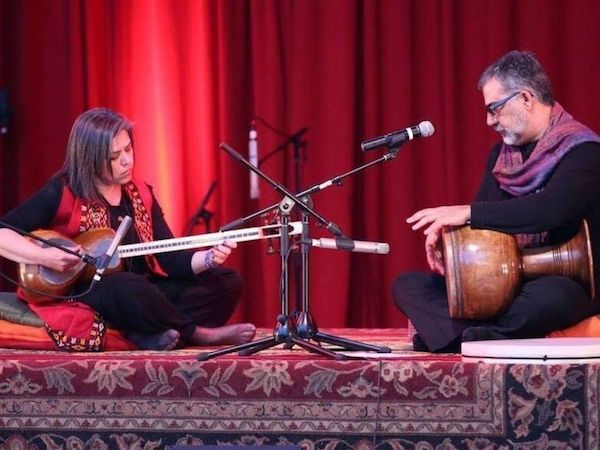Program
| Improvisation in Dastgah Mahur |
| Tasnif Behamzaban |
| Improvisation in Dastgah Mahur |
| Tasnif Sarve Chaman |
| Improvisation in Avaz Esfahan & Dastgah Shur |
| Tasnif Ba Man Sanama in Dastgah Shur |
|
Lian Ensemble: Pirayeh Pourafar, tar; Khosro Ansari, vocals; Mani Bolouri, kamanche; Houman Pourmehdi; Ney, daf, tonbak |
Nearly 20 years ago, I had the pleasure of seeing the whirling dervishes perform the Sema in person for the first time. Like many people, this particular tradition, The Mevlevi Order which was started by the students of the religious teacher and poet Rumi, was my introduction to Sufi practice and philosophy. Before the event began, a person came onto the stage to give an introduction and provide context for what was about to happen. In addition to explaining the history of this particular order and practice, they said something which has stuck with me to this day: that what we were about to witness was not a performance but a form of prayer, one that happens to be beautiful, and we have been invited to share in it as witnesses. Ultimately, however, this whirling is a form of personal devotion, and we should therefore not applaud as if it were a performance.
This framing of a beautiful, outwardly performative prayer struck me like lightning. If prayer had the potential to be expressed so beautifully that it is perceived as performance, might not the opposite be true as well? Could every performance have, at its center, a spiritual experience? Deep in my bones, I knew this was how I had always experienced music, and that my spiritual and creative practice were as intrinsically entwined as it is in the Sufi ritual I witnessed.
I’ve since learned that the Mevlevi Order is only one of many Sufi traditions, each with their own practices, most of which do NOT involve whirling. Many, however, do use music and dance as a way of attaining an ecstatic state. By ecstasy I don’t mean extreme pleasure but rather the original meaning of the term from the Greek Ekstasis, “to stand outside oneself”, a trance-like state of self-transcendence.
Like the whirling dervishes, the music being presented is very beautiful, and in most contexts would be received as a performance. For these musicians, however, and for this community, every performance has the opportunity to also be an intentional act of devotion, a form of zikr or sacred remembrance of the soul’s search for Truth, an expression of an inner hunger and longing for a greater reality. This performance is an opportunity for both performers and audience to connect with ourselves and each other, letting go of our moralizing and judgements, our fierce sense of right and wrong, and try for a moment to catch a glimpse of the expansive, loving reality beyond the one we so fiercely hold on to.
You will, of course, want to applaud the masterful musicians who are performing, and we will provide an opportunity to do so and give them our appreciation. Before we do so, however, we invite you to receive their musical offering with silence, letting it absorb and move through you, allowing the experience to be a moment of remembrance of the sacred, our relationship to it, and to each other.
This framing of a beautiful, outwardly performative prayer struck me like lightning. If prayer had the potential to be expressed so beautifully that it is perceived as performance, might not the opposite be true as well? Could every performance have, at its center, a spiritual experience? Deep in my bones, I knew this was how I had always experienced music, and that my spiritual and creative practice were as intrinsically entwined as it is in the Sufi ritual I witnessed.
I’ve since learned that the Mevlevi Order is only one of many Sufi traditions, each with their own practices, most of which do NOT involve whirling. Many, however, do use music and dance as a way of attaining an ecstatic state. By ecstasy I don’t mean extreme pleasure but rather the original meaning of the term from the Greek Ekstasis, “to stand outside oneself”, a trance-like state of self-transcendence.
Like the whirling dervishes, the music being presented is very beautiful, and in most contexts would be received as a performance. For these musicians, however, and for this community, every performance has the opportunity to also be an intentional act of devotion, a form of zikr or sacred remembrance of the soul’s search for Truth, an expression of an inner hunger and longing for a greater reality. This performance is an opportunity for both performers and audience to connect with ourselves and each other, letting go of our moralizing and judgements, our fierce sense of right and wrong, and try for a moment to catch a glimpse of the expansive, loving reality beyond the one we so fiercely hold on to.
You will, of course, want to applaud the masterful musicians who are performing, and we will provide an opportunity to do so and give them our appreciation. Before we do so, however, we invite you to receive their musical offering with silence, letting it absorb and move through you, allowing the experience to be a moment of remembrance of the sacred, our relationship to it, and to each other.
Program
| Improvisation in Dastgah Mahur |
| Tasnif Behamzaban |
| Improvisation in Dastgah Mahur |
| Tasnif Sarve Chaman |
| Improvisation in Avaz Esfahan & Dastgah Shur |
| Tasnif Ba Man Sanama in Dastgah Shur |
|
Lian Ensemble: Pirayeh Pourafar, tar; Khosro Ansari, vocals; Mani Bolouri, kamanche; Houman Pourmehdi; Ney, daf, tonbak |
Nearly 20 years ago, I had the pleasure of seeing the whirling dervishes perform the Sema in person for the first time. Like many people, this particular tradition, The Mevlevi Order which was started by the students of the religious teacher and poet Rumi, was my introduction to Sufi practice and philosophy. Before the event began, a person came onto the stage to give an introduction and provide context for what was about to happen. In addition to explaining the history of this particular order and practice, they said something which has stuck with me to this day: that what we were about to witness was not a performance but a form of prayer, one that happens to be beautiful, and we have been invited to share in it as witnesses. Ultimately, however, this whirling is a form of personal devotion, and we should therefore not applaud as if it were a performance.
This framing of a beautiful, outwardly performative prayer struck me like lightning. If prayer had the potential to be expressed so beautifully that it is perceived as performance, might not the opposite be true as well? Could every performance have, at its center, a spiritual experience? Deep in my bones, I knew this was how I had always experienced music, and that my spiritual and creative practice were as intrinsically entwined as it is in the Sufi ritual I witnessed.
I’ve since learned that the Mevlevi Order is only one of many Sufi traditions, each with their own practices, most of which do NOT involve whirling. Many, however, do use music and dance as a way of attaining an ecstatic state. By ecstasy I don’t mean extreme pleasure but rather the original meaning of the term from the Greek Ekstasis, “to stand outside oneself”, a trance-like state of self-transcendence.
Like the whirling dervishes, the music being presented is very beautiful, and in most contexts would be received as a performance. For these musicians, however, and for this community, every performance has the opportunity to also be an intentional act of devotion, a form of zikr or sacred remembrance of the soul’s search for Truth, an expression of an inner hunger and longing for a greater reality. This performance is an opportunity for both performers and audience to connect with ourselves and each other, letting go of our moralizing and judgements, our fierce sense of right and wrong, and try for a moment to catch a glimpse of the expansive, loving reality beyond the one we so fiercely hold on to.
You will, of course, want to applaud the masterful musicians who are performing, and we will provide an opportunity to do so and give them our appreciation. Before we do so, however, we invite you to receive their musical offering with silence, letting it absorb and move through you, allowing the experience to be a moment of remembrance of the sacred, our relationship to it, and to each other.
This framing of a beautiful, outwardly performative prayer struck me like lightning. If prayer had the potential to be expressed so beautifully that it is perceived as performance, might not the opposite be true as well? Could every performance have, at its center, a spiritual experience? Deep in my bones, I knew this was how I had always experienced music, and that my spiritual and creative practice were as intrinsically entwined as it is in the Sufi ritual I witnessed.
I’ve since learned that the Mevlevi Order is only one of many Sufi traditions, each with their own practices, most of which do NOT involve whirling. Many, however, do use music and dance as a way of attaining an ecstatic state. By ecstasy I don’t mean extreme pleasure but rather the original meaning of the term from the Greek Ekstasis, “to stand outside oneself”, a trance-like state of self-transcendence.
Like the whirling dervishes, the music being presented is very beautiful, and in most contexts would be received as a performance. For these musicians, however, and for this community, every performance has the opportunity to also be an intentional act of devotion, a form of zikr or sacred remembrance of the soul’s search for Truth, an expression of an inner hunger and longing for a greater reality. This performance is an opportunity for both performers and audience to connect with ourselves and each other, letting go of our moralizing and judgements, our fierce sense of right and wrong, and try for a moment to catch a glimpse of the expansive, loving reality beyond the one we so fiercely hold on to.
You will, of course, want to applaud the masterful musicians who are performing, and we will provide an opportunity to do so and give them our appreciation. Before we do so, however, we invite you to receive their musical offering with silence, letting it absorb and move through you, allowing the experience to be a moment of remembrance of the sacred, our relationship to it, and to each other.
Performers
|
Lian Ensemble |
The Lian Ensemble, founded in 1996 by Pirayeh Pourafar and Houman Pourmehdi, is a group of Los Angeles-based performers and composers whose “painstakingly structured compositions with pounding rhythms” (LA Times) fuse mystical Persian musical heritage with the contemporary sensibilities of postmodern jazz. Combining a musical vision with dedication to experimentation, they create a synthesis of mystical world music composed of traditional folk melodies and instruments. |
|
Proudly powered by Weebly
|
The Resonance Collective


